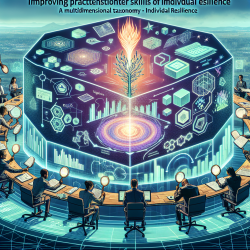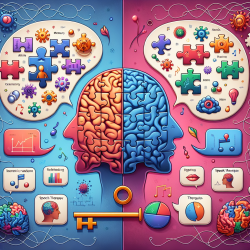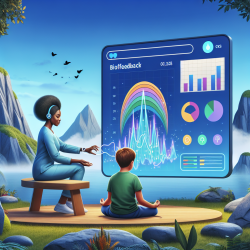Empowering Practitioners: Harnessing the Brazilian CFKS for Better Outcomes
In the realm of speech-language pathology and online therapy services, data-driven decisions are crucial for achieving optimal outcomes. The recent translation and cross-cultural adaptation of the Cystic Fibrosis Knowledge Scale (CFKS) into Brazilian Portuguese marks a significant advancement in the field. This blog explores how practitioners can leverage this tool to enhance their skills and improve patient outcomes.
Understanding the Brazilian CFKS
The Brazilian version of the CFKS is a meticulously translated and culturally adapted tool designed to assess knowledge about cystic fibrosis (CF) among healthcare professionals, patients, and students. The original CFKS, developed in Canada, was renowned for its reliability and validity in measuring CF knowledge. The Brazilian adaptation maintains these qualities, offering a robust instrument for evaluating and addressing knowledge gaps in a culturally relevant context.
Key Findings from the Research
The study involved a diverse sample, including individuals with CF, asthma patients, healthcare workers, and health students. The Brazilian CFKS demonstrated high internal consistency (α = 0.91) and excellent predictive validity, distinguishing between different groups based on their knowledge levels. Importantly, the scale's construct validity was affirmed through exploratory and confirmatory factor analyses, identifying three dimensions: medication, physiotherapeutic aspects and social interaction, gastrointestinal, genetic and reproductive aspects, and nutritional aspects.
Implications for Practitioners
For practitioners, the Brazilian CFKS offers a powerful tool for identifying knowledge gaps and tailoring educational interventions. By understanding specific areas where patients or healthcare providers lack knowledge, practitioners can develop targeted strategies to enhance understanding and treatment adherence. This personalized approach is crucial, as research indicates that increased knowledge correlates with better treatment adherence, reduced hospitalizations, and improved quality of life for CF patients.
Encouraging Further Research
While the Brazilian CFKS provides a valuable framework, ongoing research is essential to refine and expand its applications. Practitioners are encouraged to explore the scale's use in various settings and populations, contributing to a growing body of evidence that supports its efficacy. Additionally, further studies could investigate the relationship between knowledge, adherence, and clinical outcomes, offering deeper insights into the dynamics of CF management.
Conclusion
The Brazilian version of the CFKS is a testament to the power of cross-cultural adaptation and psychometric evaluation in enhancing healthcare delivery. By integrating this tool into practice, speech-language pathologists and online therapy providers can make informed, data-driven decisions that lead to better outcomes for children and adults with cystic fibrosis.
To read the original research paper, please follow this link: Translation, cross-cultural adaptation and psychometric evaluation of the Brazilian version of the Cystic Fibrosis Knowledge Scale (CFKS).










